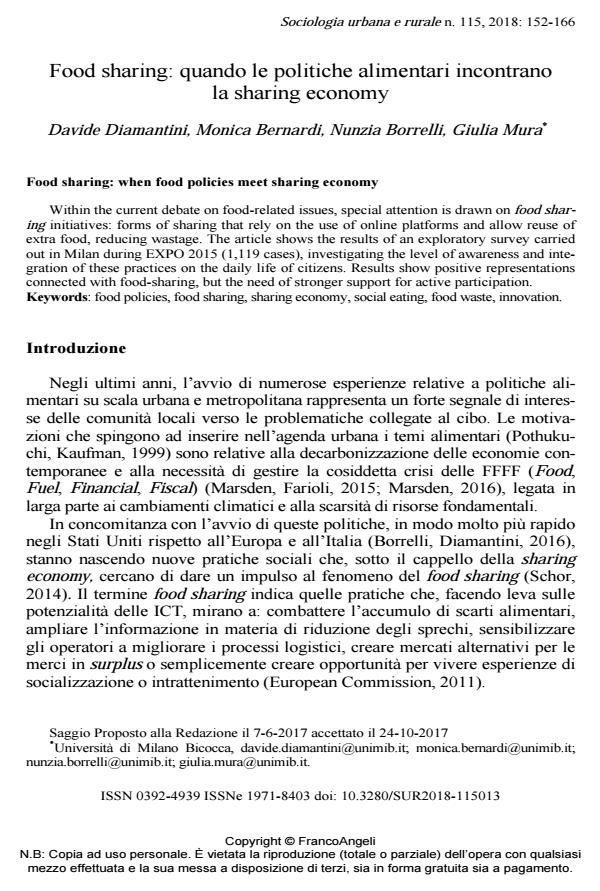Food sharing: when food policies meet sharing economy
Journal title SOCIOLOGIA URBANA E RURALE
Author/s Davide Diamantini, Monica Bernardi, Nunzia Borrelli, Giulia Mura
Publishing Year 2018 Issue 2018/115
Language Italian Pages 15 P. 152-166 File size 249 KB
DOI 10.3280/SUR2018-115013
DOI is like a bar code for intellectual property: to have more infomation
click here
Below, you can see the article first page
If you want to buy this article in PDF format, you can do it, following the instructions to buy download credits

FrancoAngeli is member of Publishers International Linking Association, Inc (PILA), a not-for-profit association which run the CrossRef service enabling links to and from online scholarly content.
Within the current debate on food-related issues, special attention is drawn on food sharing initiatives: forms of sharing that rely on the use of online platforms and allow reuse of extra food, reducing wastage. The article shows the results of an exploratory survey carried out in Milan during EXPO 2015 (1,119 cases), investigating the level of awareness and integration of these practices on the daily life of citizens. Results show positive representations connected with food-sharing, but the need of stronger support for active participation.
Keywords: Food policies, food sharing, sharing economy, social eating, food waste, innovation.
- Limiti e potenzialità delle azioni a contrasto dello spreco alimentare. Uno studio nei mercati rionali del Comune di Milano Giulia Mura, Nunzia Borrelli, in SOCIOLOGIA URBANA E RURALE 120/2019 pp.149
DOI: 10.3280/SUR2019-120010
Davide Diamantini, Monica Bernardi, Nunzia Borrelli, Giulia Mura, Food sharing: quando le politiche alimentari incontrano la sharing economy in "SOCIOLOGIA URBANA E RURALE" 115/2018, pp 152-166, DOI: 10.3280/SUR2018-115013